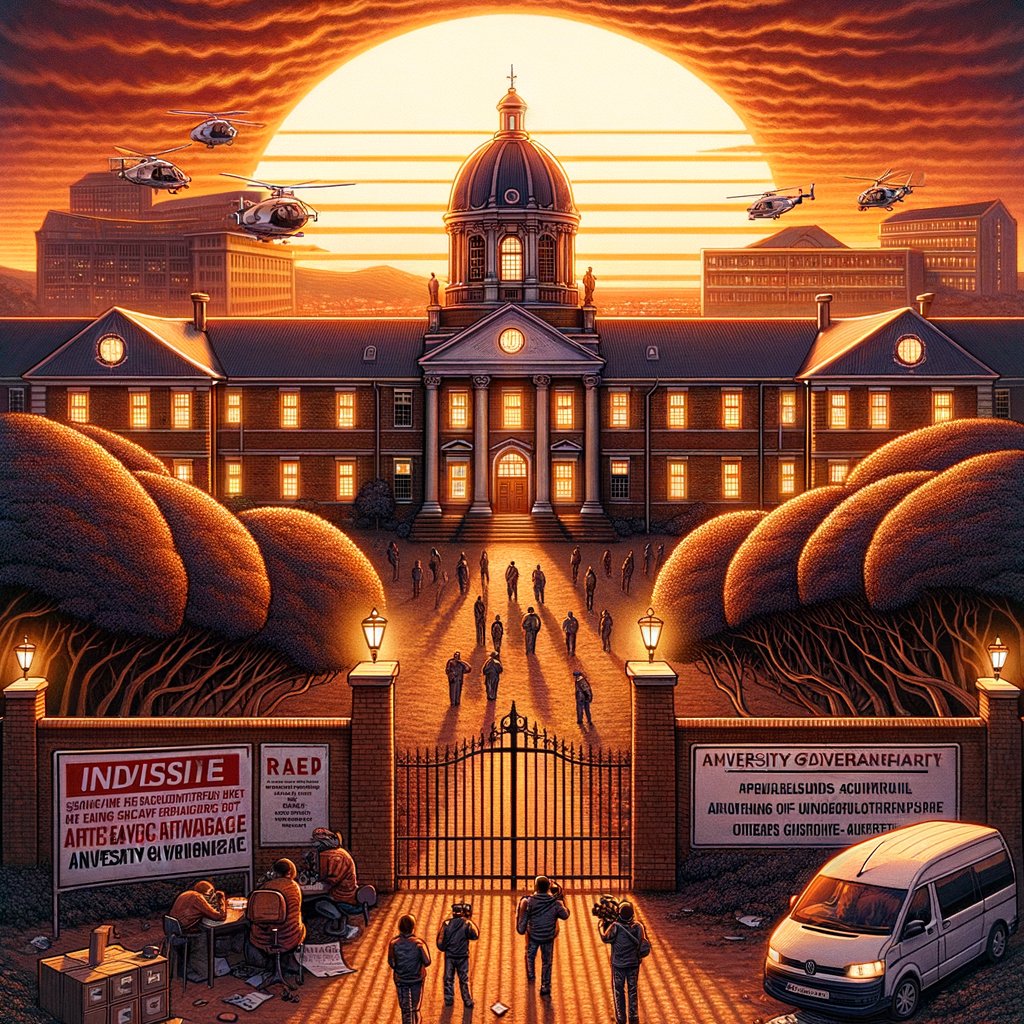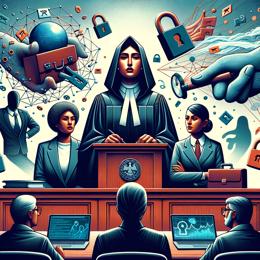Image created by AI
The Controversy at Wilgenhof: Unveiling the Layers of Media Sensationalism and University Politics
As the sun sets on 2024, Wilgenhof, a historic residence at Stellenbosch University, finds itself at the vortex of a heated controversy, underscored by sensationalist media coverage and serious internal schisms within university governance.
Wilgenhof, renowned for its significant contributions to anti-apartheid efforts and as a cradle for many of South Africa’s business luminaries, has been dramatically painted in recent times. News24’s portrayal of the residence, branding it a hub of neo-Nazi and white supremacist behavior, has spurred widespread public and internal outcry, drastically altering perceptions and igniting a fierce debate on media ethics and university accountability.
At the heart of this controversy is the issue of administrative actions and media responsibility. Early January witnessed an invasive raid by university officials on Wilgenhof, where personal spaces and the residence’s 120-year historical archive were scrutinized. These actions led to the leak of controversial images to News24, casting a dark shadow over the residence by depicting it as a "House of Horrors." Subsequently, Vice Chancellor Wim de Villiers, as revealed in a leaked letter dated November 20, criticized university personnel, specifically Chancellor Edwin Cameron, accusing them of conflicts of interest and minimalizing the depicted activities which he deemed abhorrent.
Interestingly, Chancellor Cameron’s stance, as perceived through private communications, suggests a minimization of the aggressive administrative reactions to the residence’s internal disciplinary practices, commonly known as 'Nagligte.' Cameron’s emails and communications revealed via News24 suggest his dismissal of the initial administrative panic as overly dramatic and harmful to the reputation of both the university and Wilgenhof. This internal conflict piques interest as it showcases a stark juxtaposition between private viewpoints and public statements within university leadership, intensifying the scandal.
The vice-chancellor’s complaints about Cameron reflect deeper issues of manipulation and reputational risk, emphasizing a potentially unjust organizational agenda against Wilgenhof driven by external and internal pressures. These complex layers of governance and public communication have not only impacted student lives but have also sparked legal scrutiny, with implications of the residence’s closure being potentially unlawful.
Given the consequences endured by current students and alumni – including reputational damage and personal trauma – the situation begs a larger discussion on the ramifications of unchecked media power and unbalanced administrative actions in educational settings.
News24’s narrative and its reliance on sensationalist tones and anonymous sources, contrast sharply against the backdrop of testimonies from numerous alumni and current students, who cite positive experiences and deny allegations of misconduct. This discrepancy underlines the importance of balanced and responsible journalism, especially when tackling issues with profound personal and institutional implications.
This incident serves as a critical reflection point for media houses and educational institutions in handling sensitive issues with integrity and careful consideration of the impacts on all involved parties. The necessity for a balanced narrative is clear, demanding a more equitable media approach that considers all perspectives, fostering a more informed and less polarized public discourse.










